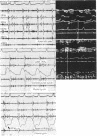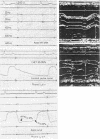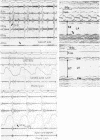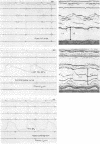Abstract
Fifteen patients with congestive cardiomyopathy who had improved conspicuously on chronic administration of a beta-blocker were studied after withdrawal of the drug. In six patients there was a pronounced deterioration of their clinical condition, and in all of the remaining patients there was a significant decrease in ejection fraction, and signs of compromised diastolic function with pathological apex curves and an increase in third heart sound. All these changes were reversed within a few weeks to a few months after readministration of beta-blocking drugs. This study supports the idea that an aetiological factor in congestive cardiomyopathy may be a pathological response to sympathetic stimulation which could be partly controlled by administration of beta-blocking drugs.
Full text
PDF







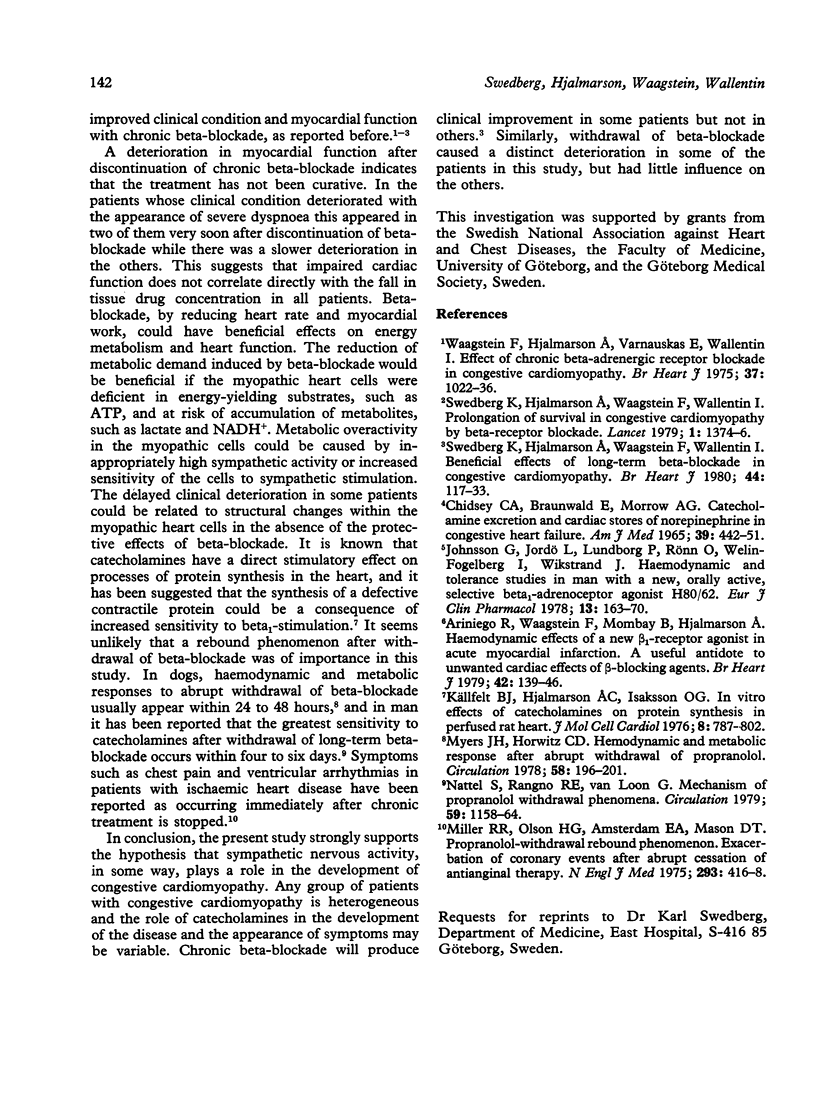
Images in this article
Selected References
These references are in PubMed. This may not be the complete list of references from this article.
- Ariniego R., Waagstein F., Mombay B., Hjalmarson A. Haemodynamic effects of a new beta 1-receptor agonist in acute myocardial infarction. A useful antidote to unwanted cardiac effects of beta-blocking agents. Br Heart J. 1979 Aug;42(2):139–146. doi: 10.1136/hrt.42.2.139. [DOI] [PMC free article] [PubMed] [Google Scholar]
- CHIDSEY C. A., BRAUNWALD E., MORROW A. G. CATECHOLAMINE EXCRETION AND CARDIAC STORES OF NOREPINEPHRINE IN CONGESTIVE HEART FAILURE. Am J Med. 1965 Sep;39:442–451. doi: 10.1016/0002-9343(65)90211-1. [DOI] [PubMed] [Google Scholar]
- Johnsson G., Jordö L., Lundborg P., Rönn O., Welin-Fogelberg I., Wikstrand J. Haemodynamic and tolerance studies in man of a new, orally active, selective beta1-adrenoceptor agonist H 80/62. Eur J Clin Pharmacol. 1978 May 31;13(3):163–170. doi: 10.1007/BF00609978. [DOI] [PubMed] [Google Scholar]
- Källfelt B. J., Hjalmarson A. C., Isaksson O. G. In vitro effects of catecholamines on protein synthesis in perfused rat heart. J Mol Cell Cardiol. 1976 Oct;8(10):787–802. doi: 10.1016/0022-2828(76)90085-7. [DOI] [PubMed] [Google Scholar]
- Miller R. R., Olson H. G., Amsterdam E. A., Mason D. T. Propranolol-withdrawal rebound phenomenon. Exacerbation of coronary events after abrupt cessation of antianginal therapy. N Engl J Med. 1975 Aug 28;293(9):416–418. doi: 10.1056/NEJM197508282930902. [DOI] [PubMed] [Google Scholar]
- Myers J. H., Horwitz L. D. Hemodynamic and metabolic response after abrupt uithdrawal of long-term propranolol. Circulation. 1978 Aug;58(2):196–201. doi: 10.1161/01.cir.58.2.196. [DOI] [PubMed] [Google Scholar]
- Nattel S., Rangno R. E., Van Loon G. Mechanism of propranolol withdrawal phenomena. Circulation. 1979 Jun;59(6):1158–1164. doi: 10.1161/01.cir.59.6.1158. [DOI] [PubMed] [Google Scholar]
- Swedberg K., Hjalmarson A., Waagstein F., Wallentin I. Beneficial effects of long-term beta-blockade in congestive cardiomyopathy. Br Heart J. 1980 Aug;44(2):117–133. doi: 10.1136/hrt.44.2.117. [DOI] [PMC free article] [PubMed] [Google Scholar]
- Swedberg K., Hjalmarson A., Waagstein F., Wallentin I. Prolongation of survival in congestive cardiomyopathy by beta-receptor blockade. Lancet. 1979 Jun 30;1(8131):1374–1376. doi: 10.1016/s0140-6736(79)92010-5. [DOI] [PubMed] [Google Scholar]
- Waagstein F., Hjalmarson A., Varnauskas E., Wallentin I. Effect of chronic beta-adrenergic receptor blockade in congestive cardiomyopathy. Br Heart J. 1975 Oct;37(10):1022–1036. doi: 10.1136/hrt.37.10.1022. [DOI] [PMC free article] [PubMed] [Google Scholar]




